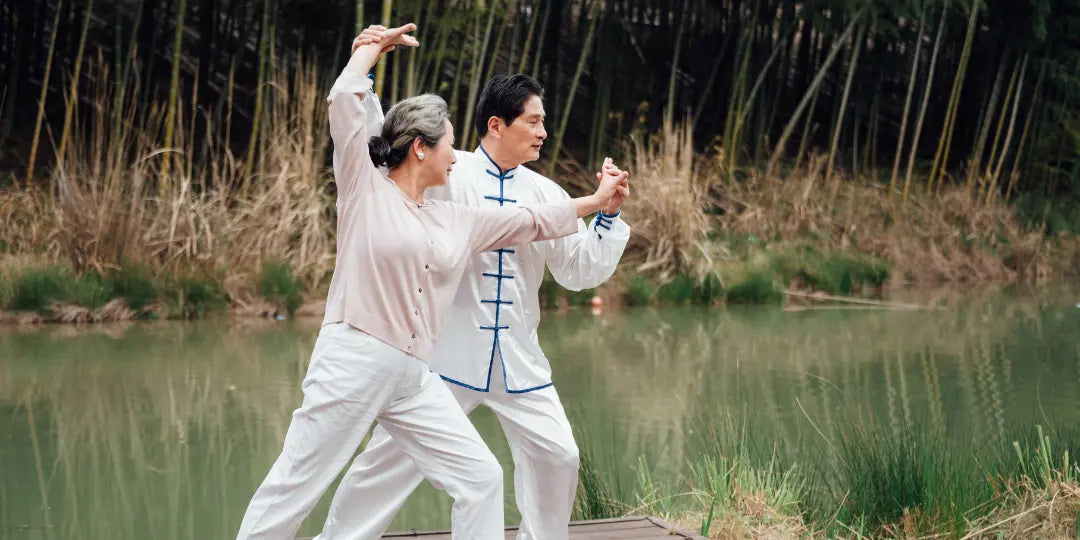Have you ever heard of Tai Chi? It is a Chinese discipline in which movements are performed that are both fluid and harmonious, in series and in a slow and thoughtful manner. Although it was originally a martial art, Tai Chi is now practiced for its health benefits, particularly on stress and anxiety. Want to know more about it? Here is our article on the effects of Tai Chi on stress and anxiety!
Understanding Stress and Anxiety
What are the health consequences of stress and anxiety?
It is no longer a secret to anyone, but stress and anxiety can have psychological effects, but not only . Indeed, the following can also be impacted: digestive health (irritations, ulcers), the cardiovascular system (more risk of being affected by heart disease), the immune system (weaker natural defenses).
In addition, those who suffer from chronic anxiety find it difficult to maintain a satisfactory quality of life . And this can subsequently lead to various mood disorders (including depression, for example).
What are traditional approaches to stress management?
As stress has developed in more and more people, so have the approaches to manage it as best as possible. Some of the most common methods today include relaxation and breathing exercises , cognitive behavioral therapies , mindfulness meditation , sports (such as Tai Chi) and drug therapies . However, while these approaches may be effective for some, they are not always suitable for everyone.
Tai Chi, an ancestral practice for mental health
History and development of Tai Chi
Tai Chi has its origins in Taoist philosophy and Chinese martial arts . It is a discipline inspired by energetic principles and the search for balance between Yin (the passive principle) and Yang (the active principle) . And while there are different styles today, Tai Chi is still renowned for its therapeutic benefits. Ultimately, it is much more than just exercises; it is a real method for calming the body and mind (and thus better understanding stress and anxiety).
The Fundamental Principles of Tai Chi
As in many physical activities, Tai Chi is based on fundamental principles, which are:
- Slow and harmonious movement : this involves using continuous and fluid movements, as in a dance. Each movement is precise, while being skillfully linked to the previous one. Which ultimately forms a sequence that promotes a connection between the body and the mind. These movements gently engage the muscles, improve coordination and release accumulated tension.
- Controlled breathing : Deep, conscious breathing is essential in the practice of Tai Chi. Indeed, this technique encourages relaxation of the nervous system, reduces cortisol levels (the stress hormone) and improves blood oxygenation. By breathing deeply and synchronizing the breath with the movement, we seek a state of inner calm.
- Meditation : While performing the various Tai Chi movements, the mind focuses on the movement and breathing, creating a state of active meditation. This state helps to calm negative thoughts and mental ruminations, which are often the cause of anxiety. Meditation also improves resilience in the face of the challenges of daily life.
The Effects of Tai Chi on Stress and Anxiety
An impact on the nervous system
In everyday life, and for a large part of the day, the human body is in a state of alert. But when we practice Tai Chi, then the body goes into a state of rest . This can then result in a slowing of the heart rate, a decrease in blood pressure, a reduction in cortisol levels: a whole combo promoting a real relaxation of the body . And several studies prove that this regulation of the nervous system is greatly beneficial for people suffering from chronic anxiety.
Improved sleep and recovery
Tai Chi also has an impact on the quality of sleep . Indeed, it is not uncommon for stress and anxiety to be often associated with sleep disorders of all kinds (difficulty falling asleep, insomnia, nighttime awakenings). So, by relaxing the mind and body, Tai Chi is a practice that helps facilitate falling asleep and a deeper, therefore more restorative sleep (both physical and mental).
A focus on the present
To practice Tai Chi, participants are asked to pay the greatest possible attention to each movement performed . Concentrating fully on each movement helps to reduce the space that negative thoughts can occupy, to improve self-perception, and finally to connect intimately with the present moment. Thus, this concentration on the present results in a reduction of anxiety , which is then generally based on worries related to the past or the future.
Why and how to integrate Tai Chi into an active lifestyle?
Some recommendations for starting Tai Chi
As mentioned earlier in this article, there are several styles of Tai Chi , each with its own specificities. For example, the Yang style is the most practiced and is ideal for beginners, while the Chen style offers more dynamic movements. And for people wishing to focus on relaxation and stress management, styles like Wu are recommended, as they favor slow and gentle movements.
In addition, it is possible to practice Tai Chi alone or in a group , depending on each person's preference. Group classes offer a structured setting, collective encouragement, and the opportunity to learn from more experienced people. And for those who prefer a more personal and flexible experience, solo practice allows you to go at your own pace.
Practical tips to maximize the benefits
To maximize the beneficial effects of Tai Chi, here are some tips generally given to people who wish to start this practice:
- Practice regularly : As with anything, you need to practice regularly to see visible results (e.g. 15-30 minutes a day).
- Create a suitable space : As with meditation, it is essential to find a quiet place, without distractions, to practice Tai Chi in complete tranquility.
- Wear comfortable clothing : Indeed, loose and comfortable clothing facilitates movement and improves the experience.
Conclusion
In conclusion, we can say that Tai Chi offers a gentle and effective approach to reducing stress and anxiety. Thanks to its fluid movements, controlled breathing and meditative dimension, it allows you to find both mental and physical balance. To do this, you must, of course, find the style that suits each person and practice regularly, in an appropriate space and with suitable clothing. So, are you ready to get started?






